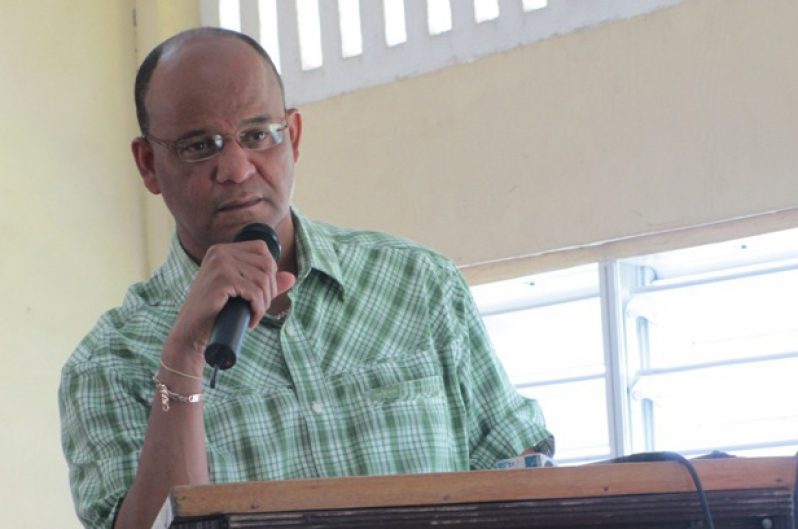THE fact that dead men tell no tales was acknowledged by General Secretary of the ruling party, Clement Rohee, yesterday at the party’s weekly press briefing at Freedom House, Robb Street.
However, he conceded that the founder of the People’s Progressive Party (PPP), the late Dr. Cheddi Jagan, “probably” would have prorogued the National Assembly, as the current Head of State Donald Ramotar has done.
“It is difficult to predict, but knowing the man and knowing that he listens to his comrades, 15 of them in the Executive Committee and 35 of them in the Central Committee, and doing the necessary soundings with the stakeholders, he probably would have ended up in this situation too….he probably would have prorogued,” Rohee said.
President Ramotar yesterday announced, in an address to the nation, that he issued a proclamation to prorogue Parliament, which essentially means that the current session is suspended up to a maximum of six months – a move that is provided for in Section 70 (1) of Guyana’s constitution.
The President’s decision followed a prior address to the nation, on November 4, 2014, in which he stated that it was his desire for the National Assembly, in its post-recess sittings, to deliberate and give priority to important matters relating to the development of the country and the future of all Guyanese.
Unfortunately, the combined Opposition parties, A Partnership for National Unity (APNU) and the Alliance For Change (AFC), indicated their intention to push ahead with the AFC-sponsored no-confidence motion, which would have triggered a dissolution of the 10th Parliament and made way for fresh general elections.
As such, the President, in keeping with his November 4 commitment, moved to prorogue the Parliament to pave the way for greater dialogue, in the interest of the Guyanese people.
Dr. JAGAN’S REASONING
This premise, according to the PPP General Secretary, would have been the reasoning of the late Dr. Jagan also.
“He would have run on the same track because he was a believer in dialogue. He was a believer in consultation, but when faced with a political situation in which he would have gone down a particular road, he would have prorogued,” Rohee said.
UNFINISHED BUSINESS DIES
The principal effect of ending a session by prorogation is to terminate business. Members are released from their parliamentary duties until Parliament is next summoned. All unfinished business is dropped from or “dies” on the Order Paper, the National Assembly’s agenda, and all committees lose their power to transact business, providing a fresh start for the next session. No committee can sit during a prorogation. Bills which have not received Royal Assent before prorogation are “entirely terminated” and in order to be proceeded with in the new session, must be reintroduced as if they had never existed.
The Presidential right to prorogue Parliament is one that is common in the constitutions in Commonwealth countries, making it a commonly-used tool Governments resort to. However, in Guyana, this is the first time such a move has been made.












